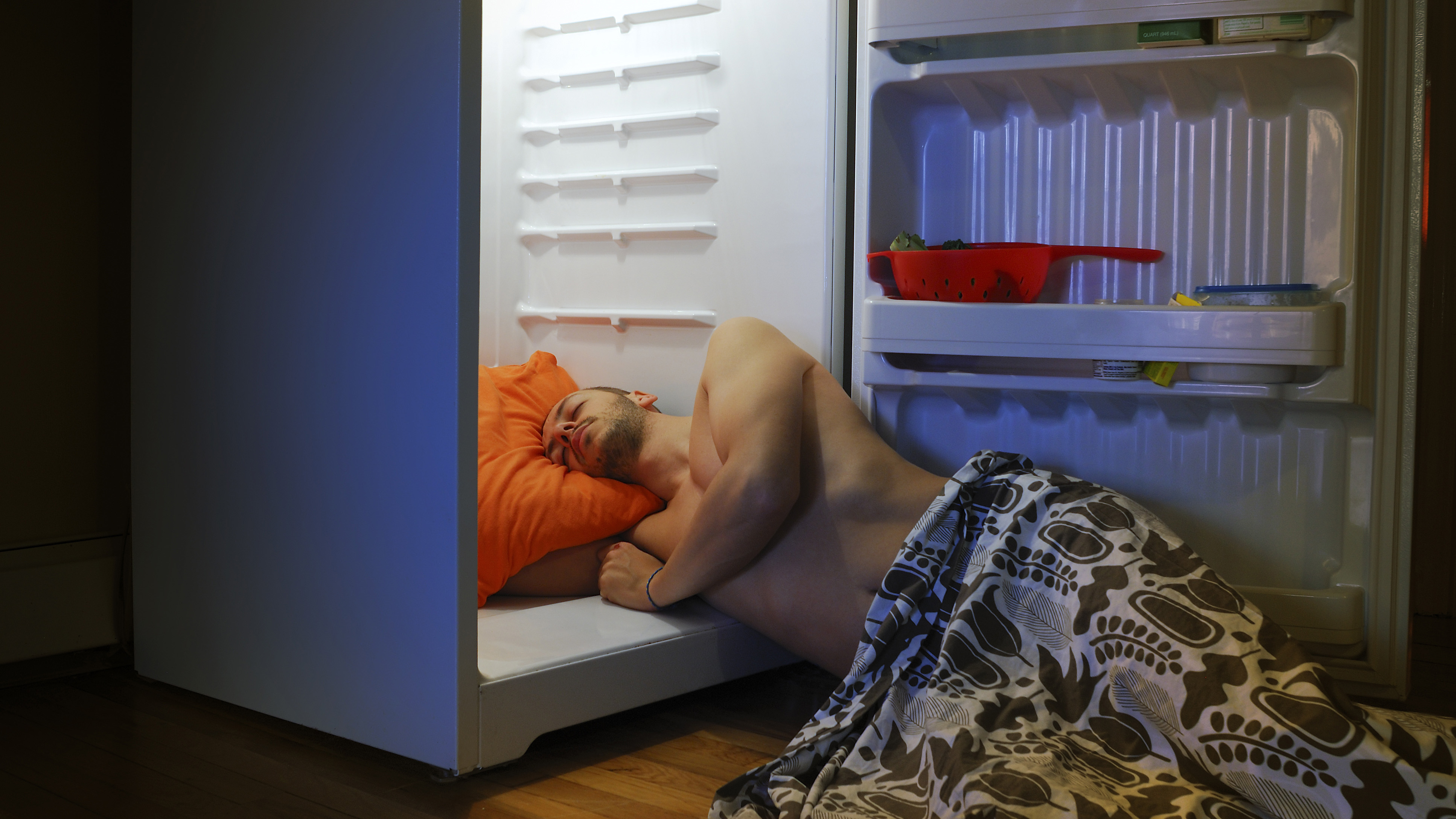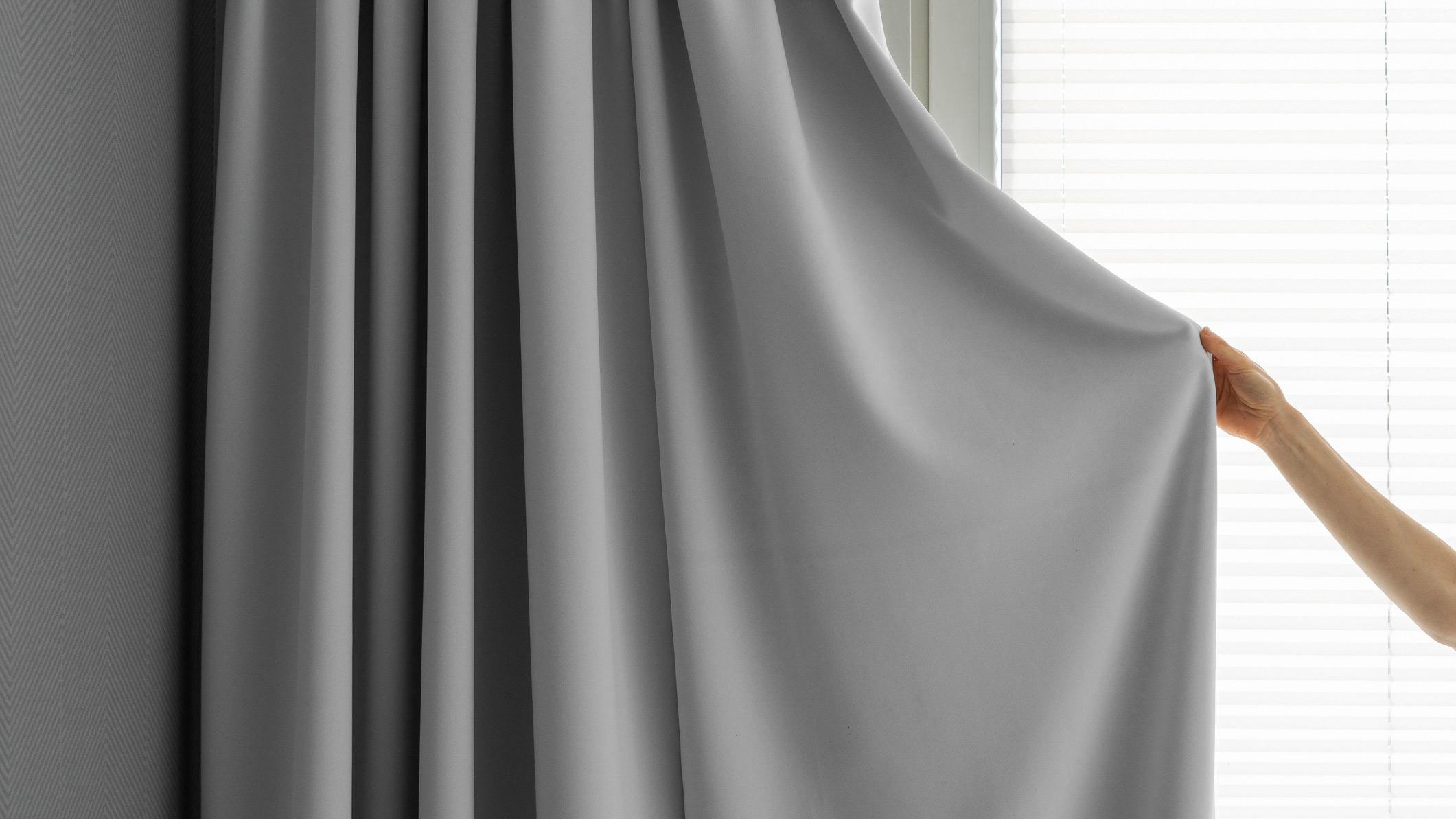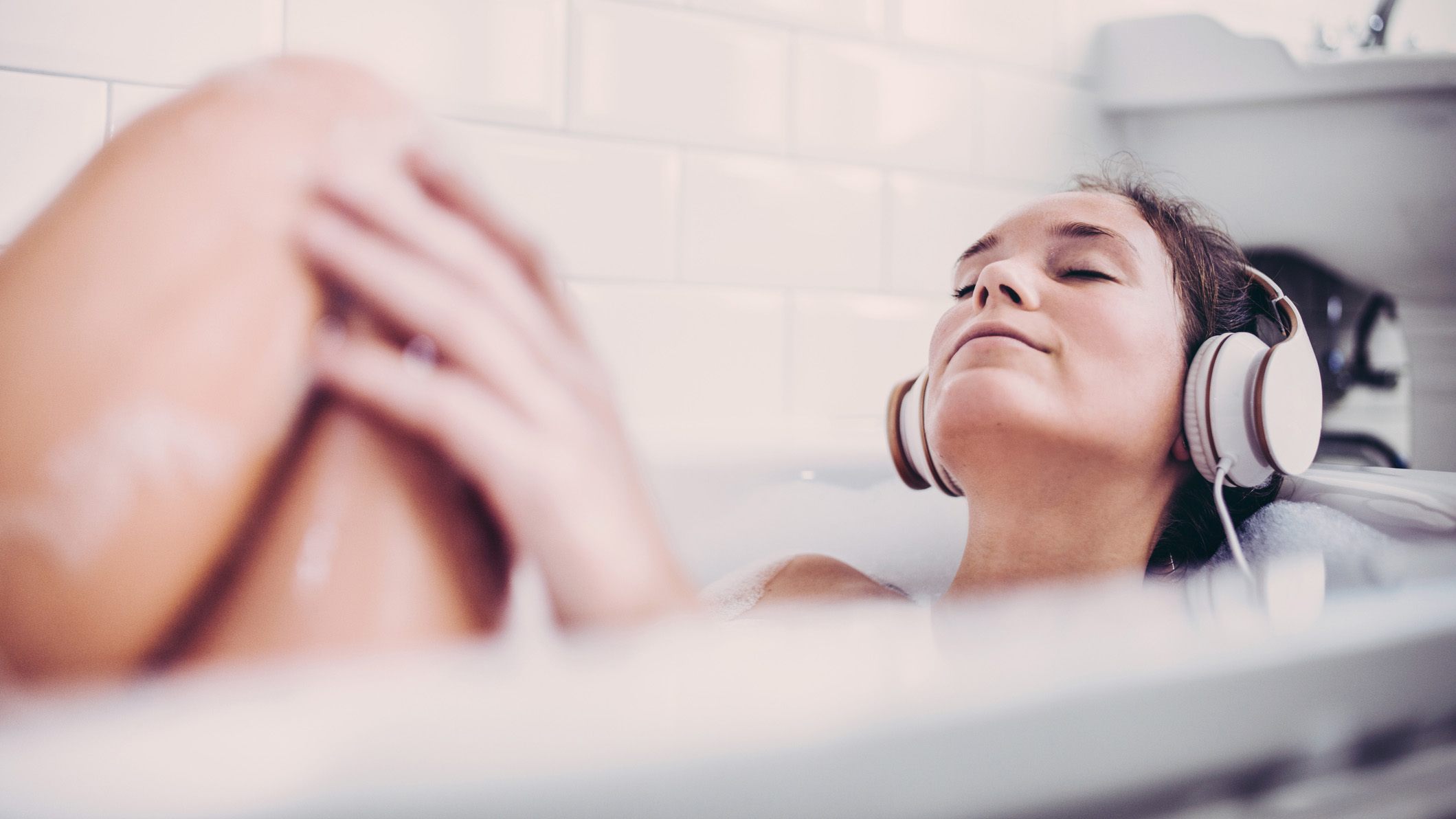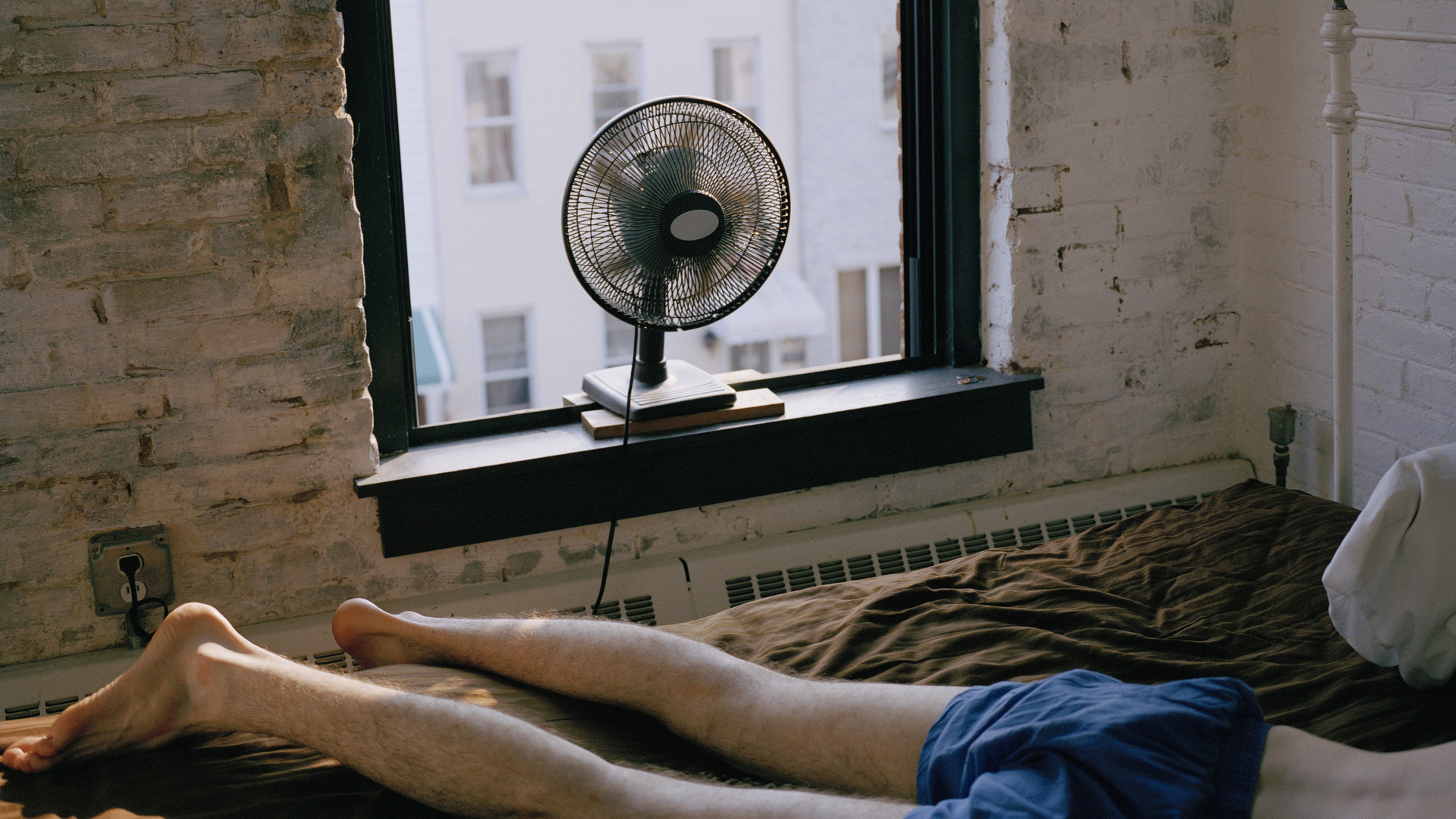How to sleep in hot weather: expert advice on how to survive the heatwave

Managing to sleep in hot weather can be a challenge, as many of you are doubtless discovering right now. While the temperature comes down at night, your bedroom's still retaining the day's heat and there's no air circulating, and as a result you feel far too hot to get to sleep.
Even having the best mattress may not help when the temperature's through the roof, and once you get to sleep you're still facing the prospect of a restless night throwing the covers off, as well as the unpleasant possibility of night sweats. Thankfully, though, there are things you can do to improve your sleep while temperatures are through the roof.
To help you get a more comfortable night tonight, we spoke to three sleep experts and a registered nutritionist to get their advice on how to sleep in hot weather. From common-sense tips like keeping curtains drawn during the day, through to more counter-intuitive advice such as taking a warm bath and even munching on chilis, these quick and easy techniques can make a real difference to how well you sleep in a heatwave. Read on to learn more.
Why is it hard to sleep in hot weather?
Your sleep tracker isn’t playing a prank on you: the hotter the weather, the harder it will be for you to fall asleep and stay asleep through the night. Sleep expert James Wilson, AKA The Sleep Geek, explains why: “A drop in core temperature is one of the most important changes our body goes through to prepare us for sleep.
“The hot weather makes the room we sleep in hotter, so this makes it harder for your body to [fall asleep].”
Theresa Schnorbach, psychologist and sleep scientist at Emma Sleep, adds: “Our body core temperature can fluctuate throughout the day... However, in order to wind down for bed and get a good night’s sleep, our bodies also need to do a bit of cooling off.”
How to sleep in hot weather: quick tips

- Close bedroom curtains in the day to stop heat building up in the room
- Open windows on both sides of your home to create airflow
- Pop a bowl of cool water or ice in front of a fan to create DIY aircon
- Eat foods that cool the body, such as cucumber slices
- Sleep naked to help your body self-regulate temperature
- Avoid heavy meals before bed as digesting food raises your temperature
- Use an ice pack under your armpits or on the back of your neck
- Lower your temperature with a lukewarm (not cold) shower before bed
- Stay hydrated with water but don’t drink too much just before bed
- Invest in a cooling mattress topper
- Sleep in a cooler room if your bedroom is still too hot
- Ditch the duvet in favour of a breathable flat sheet
1. Prep your bedroom earlier in the day
Sunshine streaming in through your windows first thing is brilliant for helping you to shake off morning grogginess, but don’t allow intense heat to build up all day in your bedroom.
“For the bedroom it’s a combination of creating airflow, whilst blocking direct sunlight that can make the room warmer.” Wilson says. “I would recommend opening the windows on both sides of the house, and when sunlight is directly on the bedroom, shut the curtains, blinds, or shutters.
“Some people find fans useful, and the white noise can be soothing to some people, although some find the noise annoying [use some sleep earplugs if this is you].” Wilson’s top tip? “Putting some cool water in front of a desk fan can help blow cool air around the room.”
A tray of ice cubes or an ice pack also works, and if it's secure and safe to do so, you could position your fan near the window to blow in cooler air from outside once the temperature finally drops at night.
Sign up for breaking news, reviews, opinion, top tech deals, and more.
2. Eat cooling foods for cooler sleep
A heatwave is the perfect time to up your intake of cooling foods, and cream of the crop are cucumbers and, er, chilis.
Nutritionist Jenny Tschiesche, who’s currently working with vegan vitamin gummies brand nutriburst, explains: “Cucumber is around 95% water. They provide hydration but also have anti-inflammatory fisetin that can help reduce puffiness, redness and irritability.”
Like your food on the hotter side? Tschiesche says chilis can be surprisingly cooling for the body: “The active ingredient in chilli, capsaicin, triggers the hypothalamus, which is like the thermostat in your body causing you to sweat. This allows you to cool down.”
Try sipping on this cooling cucumber juice tonight…
3. Switch to breathable bamboo bedding
A heatwave is not the time for fleece sheets. For a cooler feel, Hannah Shore, a bedding expert at Silentnight, recommends breathable fibres. “Natural fibres are good at temperature regulating, however some people find these materials a little heavy. If that’s you, opt for polyester as these offer a breathable sleeping environment but won’t be as heavy.”
Wilson roots for bamboo bedding. “Bamboo is great for bedding as it absorbs and wicks moisture really well. Although cotton absorbs moisture well it doesn't wick it away that great. The higher the thread count when it comes to cotton, the less breathable the fabric.”
4. Avoid heavy meals and caffeine before bed
Learning how to sleep in hot weather requires a touch of diet tweaking. “Lighter meals means easier digestion,” explains nutritionist Tschiesche. “Digestion uses energy and therefore generates heat.”
Caffeine close to bed is a big no-no for sleep anyway, but especially during hot weather. “Caffeine can stimulate the process of thermogenesis which will warm you up. Avoid coffee and caffeinated teas – including green tea near bedtime in hot weather.”
5. Use an ice pack to cool down before bed
Sleep scientist Theresa Schnorbach recommends icing your way to cooler sleep. “Take an ice pack wrapped in a cloth or a towel (never apply an ice pack directly to your skin) and hold it against places where your blood flows closest to the surface of your skin and will quickly cool you off.
No ice pack? No problem. “You can also use a hot-water bottle filled with cold water or even a damp flannel.”
6. Take a warm shower or bath before bed
Hot weather might have you dialling the shower temperature right down, but a lukewarm to warm shower or bath is more effective at cooling you before sleep.

“This might sound counterintuitive,” says Schnorbach, “but cuddling up with a warm blanket or taking a warm shower/bath before bed can help reduce your core temperature by encouraging your blood vessels to dilate, thus losing excessive body heat.”
No time for a bath or shower? Get splashing instead. “You can splash water on pulse points such as your wrists or the sides of your neck. Your body's blood vessels will react to the cool sensation and instantly bring your core temperature down.”
7. Hot or not, only go to bed when you’re sleepy
Temperatures don’t really drop until later at night during a heatwave, so what happens if it’s still molten hot outside when your bedtime rolls around? Should you ditch the nightly routine to avoid suffering in a hot bedroom? Yes, but get up at your normal time.
“We shouldn’t go to bed if we aren’t sleepy,” Wilson reminds us. “This particularly applies in hot weather and I think people need to listen to their bodies and ensure they are trying to do things that drop their heart rate, be relaxed and drop their core temperature.
“To ensure we stick to our sleep schedule and allow our sleep pressure to build properly during the day (sleep pressure drives us to feel sleepy at bedtime), even if you go to bed later keep your wake up time consistent.”
8. Don’t drink too much water before bed
“Optimal hydration can certainly help towards better sleep, but being over-hydrated will result in trips to the loo in the night which will disrupt your sleep,” says nutritionist Tschiesche.
Unsure whether you’re drinking enough water for your body weight and height? Try using an app with a hydration-tracking function, such as MyFitnessPal (learn how to use MyFitness Pal here).
9. Reconsider your mattress
Even the best mattresses can be prone to retaining heat during hot weather, so if you overheat during sleep anyway, or you’re dealing with hot flashes (flushes) or night sweats, look for the best cooling mattress.
“Mattresses that include foam, even if it is claimed the foam keeps you cool, are not as good in hot weather as sprung mattresses with natural fillings like wool, alpaca fleece, bamboo or silk,” Wilson says. “You can also get toppers that allow you to set the temperature of your sleep environment for both sides of the bed.”
How to sleep in hot weather: things to remember
As our experts have shared, you'll stand a better chance of sleeping during heatwaves and hot weather if you prepare for it. That means ensuring your bedroom is protected from intense heat and sunlight during the day, and hydrating your body enough to see you through the night.

Hacking your own aircon with an ice tray or bowl of cool water in front of a fan will blow cooler air around the room, and placing an ice pack under your arms or at the back of your neck can help if you're having a hot flash.
Most of all, try to relax and remember that this heat will pass and you'll be sleeping comfortably again in no time. While good sleep is important, most of us can cope with the odd night of broken sleep.

Claire is a Sleep Editor and Certified Sleep Science Coach who covers all things related to slumber, and is the go-to person for getting great product recommendations for better sleep. As an expert mattress reviewer, Claire has tested memory foam and hybrid mattresses from a range of top-rated brands, and has extensive experience of testing bedding too. Claire regularly speaks to certified sleep specialists, such as chartered psychologists and doctors of sleep medicine, to stay on top of the research and techniques that can help you enjoy better quality sleep, and she speaks with industry specialists about the latest mattress trends and new releases. Before delving into the world of sleep, Claire was Health & Wellness Editor at Top Ten Reviews, and before that a Senior Content Editor at T3. Having suffered with insomnia for years, Claire knows how much of a difference a good night's sleep can make and is passionate about helping others to sleep better too.